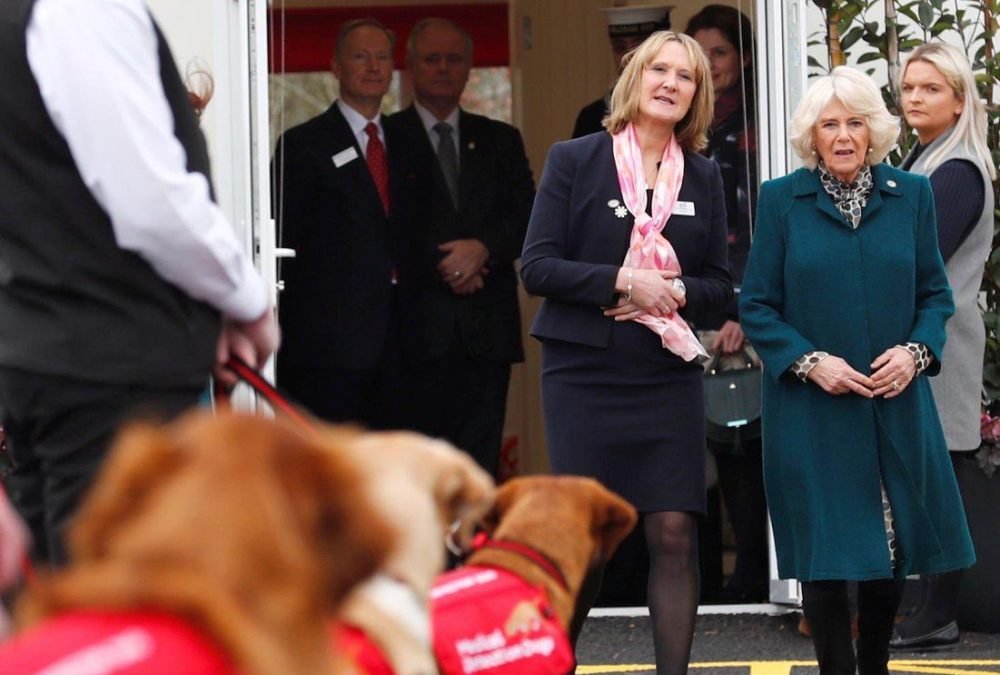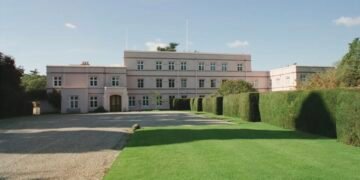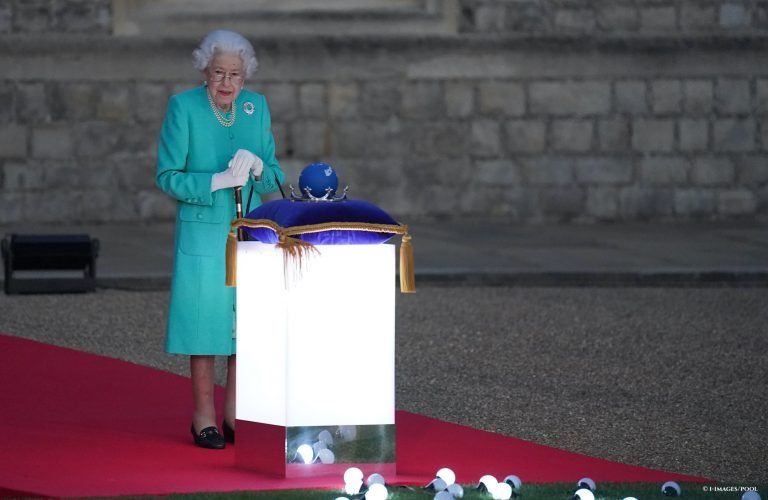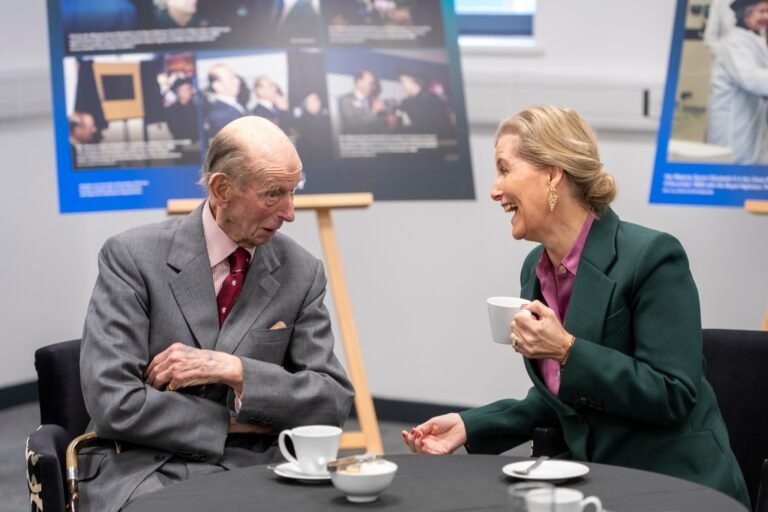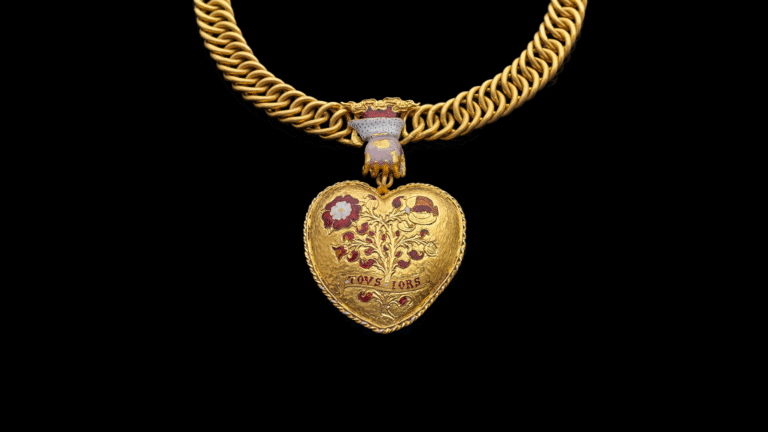Today, The Duchess of Cornwall was in Milton Keynes to open the Medical Detection Dogs new centre, as well as visit a women’s refuge in the town.


Medical Detection Dogs uses canines’ amazing sense of smell to detect disease or support those suffering with conditions that might need them to be alerted to an attack.
Starting the visit, the Duchess toured the centre and met with volunteers before viewing a short demonstration in the Dogs-In-Training area.
Camilla also visited the client training area and meet with some of the charity’s clients and their dogs, where she met Henry, a three-year-old golden retriever who jumped up to his owner, Elizabeth Draper, to alert about her increased heart beat.
Meet Henry – he’s a medical detection dog who alerts his owner Elizabeth Draper before she blacks out.
He detects changes in Elizabeth’s breath or sweat, giving her up to 7mins warning time.
Elizabeth, a student at @WrittleOfficial, says he’s changed her life. @MedDetectDogs pic.twitter.com/BQTRYVqSwK
— BBC Essex (@BBCEssex) February 14, 2019
Elizabeth suffers from a heart condition and trained Henry with sweat and breath samples to detect changes in her body and let her know when she could be about to black out and lose consciousness. Talking about the organisation, which is helping her to complete her education, Miss Draper said: “I don’t know where I would be without Medical Detection Dogs, I highly doubt I would be in university without them.”
Another dog, Presley, informed his owner of her raised heartbeat during the royal visit, and informed her then fetching her bag of medication.
Presley demonstrates detecting the odour of PoTS – a chronic health condition – on handler Helen’s leg.
In trials, dogs have been found to be 93% reliable, significantly higher than many existing tests. pic.twitter.com/05CaViDibh
— Clarence House (@ClarenceHouse) February 20, 2019
Co-founded in 2008 by Dr Claire Guest, a behavioural psychologist, and Dr John Church, a former orthopaedic surgeon, the charity now trains specialist dogs (bio-detection dogs) to detect many human diseases, including cancer, Parkinson’s disease and malaria. The organisation also provides life-saving medical alert assistance dogs to people with complex health problems such as Type 1 diabetes, PoTS (an abnormal heart rate) and Addison’s disease across the UK.
Impressed with the canines good work, The Duchess of Cornwall praised the charity, saying, “To all of you here today, I wanted to say a huge thank you from a very, very proud patron.”
Camilla has been the charity’s Patron since 2014 and in June, accompanied by The Queen, attended a Medical Detection Dogs demonstration at The Royal Mews, Buckingham Palace.
The new training centre in Milton Keynes houses its Puppy Socialising department, which ensures that the charity has enough dogs to train as future assistance dogs and bio-detection dogs.
The centre also includes space for the Medical Alert Assistance Dog team, who support applicants through the process of matching them with a dog in two purpose built client rooms, and the instructors, who train the dogs to save lives. In training trials, the dogs have proved to be 93% reliable, significantly higher than many existing tests.

Medical Detection Dog in Training Tala presents the scissors used by the Duchess to cut the ribbon opening our new Training Centre (credit PA) pic.twitter.com/4OseFTyLQ5
— MedicalDetectionDogs (@MedDetectDogs) February 20, 2019

At the end of her visit, Camilla officially opened the new facility by walking past “Guard of Honour” formed by two rows of medical detection dogs and their handlers. The Duchess of Cornwall then cut a red ribbon.
Following the visit, the Duchess headed to a local women’s refuge, MK-Act; it is a local organisation in Milton Keynes that works to help those who have suffered at the hands of domestic abuse.
The charity works with over 100 families every day to provide support and emergency accommodation for women and children escaping domestic violence in the area and have been doing so for 40 years.
Due to the nature of the visit, to a refuge that provided safe emergency accommodation, little of the royal visit has been shared.

